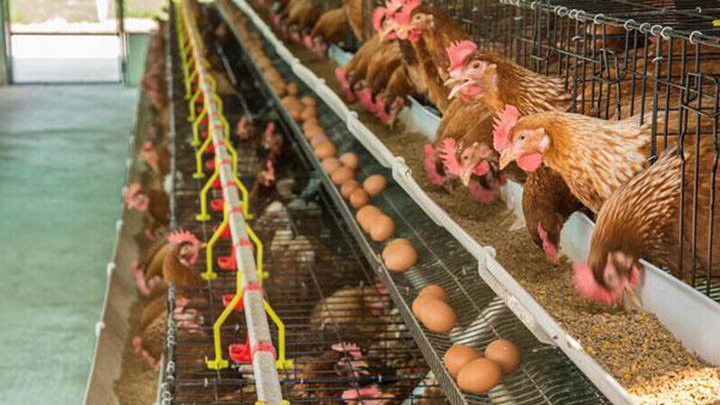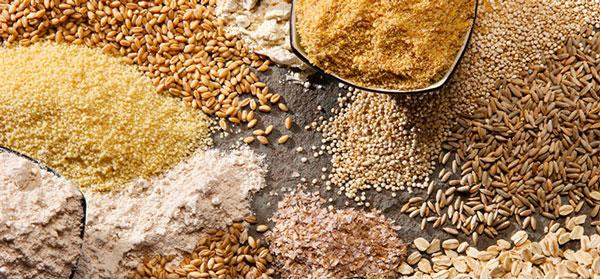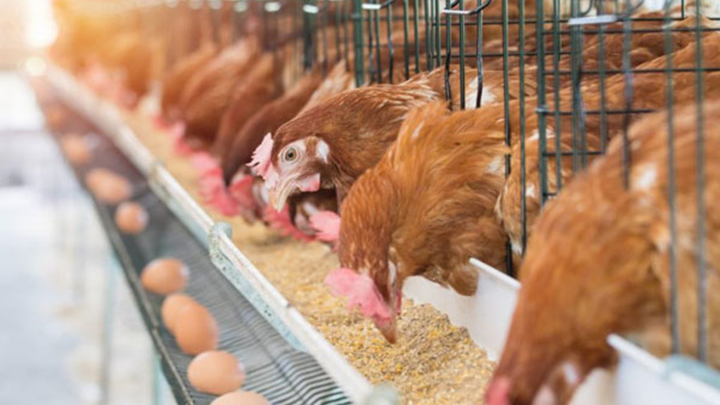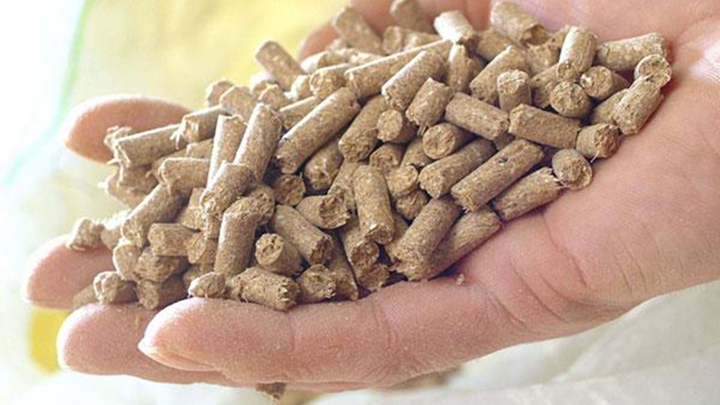Raising chickens in your backyard or poultry farm is always fun and advantageous. But it becomes really disappointing when your hens do not lay eggs properly. If you are also a chicken hobbyist and are looking for ways to boost egg production in hens, then you are lucky to be here. In this article, we are going to share with you the most important factors that affect egg production, working tips to enhance egg production and many more. So keep learning!
1) Key factors affecting egg production in chickens
As chickens are living beings, their internal body mechanisms may influenced by many external factors, which definitely pose an impact on the production of eggs. So, let’s discuss the most highlighting factors among all;
i) Breed: The category of chicken breed ( each breed has specific traits) matters in terms of the productivity of eggs. Some chicken breeds, like the Leghorn breed, are known for high egg output, while others are for meat or both purposes.
ii) Age: Chickens usually start laying eggs when they reach 18-20 weeks old. Their highest productive period is usually between 24 and 30 weeks. So, age may be the factor of variation in egg production as your chicken may be underage or of more than 30 weeks.
iii) Quality of feed: The quality of feed given to these birds has a big impact on the level of egg production. They need feeds that are rich in proteins, vitamins, and minerals too; calcium is especially vital as it facilitates the production of strong shells. Malnutrition may lead to low egg quantity and quality.
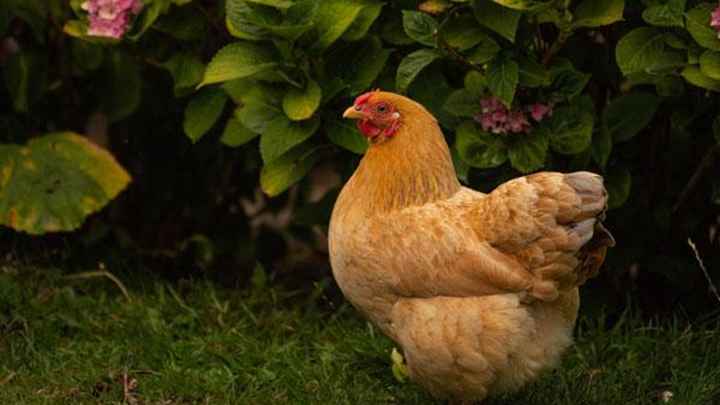
iv) Diseases: Productive hens must always be healthy, you know egg productivity may reduce as a result of diseases, parasites, and stress, etc.
v) Inadequate living conditions: Proper ventilation, temperature control and space among other things make up comfortable living conditions for chicken rearing. Moreover, crowding the birds too much, exposing them to extreme temperatures and inadequate ventilation causes stress hence low egg output levels.
vi) Molting: This is a natural process whereby the chickens shed off their old feathers allowing new ones to grow which often results into temporary stoppage in the number of eggs laid. It usually occurs once yearly for several weeks interval.
2) How often do chickens lay eggs?
On average, hens lay one egg each time for a period of 24-26 hours, which means that within a week, they lay about five to seven eggs. However, sometimes, there could be slight changes in the rate from day to day because the laying cycle does not strictly follow the clock. Apart from this, there are days when hens do not lay at all.
Typically, hens are most productive in their first year of laying which usually starts around 18-20 weeks of age. After reaching the maximum rate of laying, as they grow older, the number of eggs laid per month declines slowly.
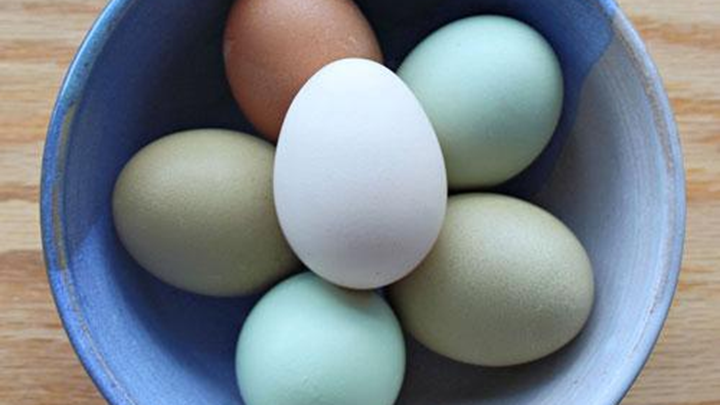
On some occasions, hens may take a break from egg production during specific times; for example, this can happen during molting or other environmental changes. In general terms, though, if you take good care of your hen, she will continually lay eggs.
3) Tips to increase egg production in your chickens
Maintaning egg production rates in chicken is not that tough, all you need is to consider some important points in your mind. So to help you out in this matter, this part of the blog is going to share with you some practical tips to increase egg production in your birds.
+ Provide A Balanced Diet: To increase egg production ( and to gain uniformity) through nutrition, focus on these key nutrients;
- Protein: Supply your chicken with feeds having at least 16% protein, which is important for overall health and egg development. Along with this, you can add mealworms such as fish meal and soybean meal, etc.
- Calcium: Good quality shells require adequate calcium supply in the bird’s body system. Consequently, it is good to provide crushed oyster shells and limestone rocks -rich in calcium or similar substances. Moreover, ensuring the constant availability of those supplements results in brittle and thin eggshells.
- Vitamin D: Vitamin D helps chickens better absorb calcium; thus it would advisable you expose them to sunlight or alternatively include vitamin D supplements into their daily feedings.
- Salts: A mere mite of sodium chloride in their food is necessary to maintain water balance and general well-being.
+ Ensure Proper Lighting: Chickens need approximately 14-16 hours of light daily for continuous egg laying. In cold seasons with short days, it would be good to put artificial light inside the coop so that they can have longer daylight that encourages more laying.
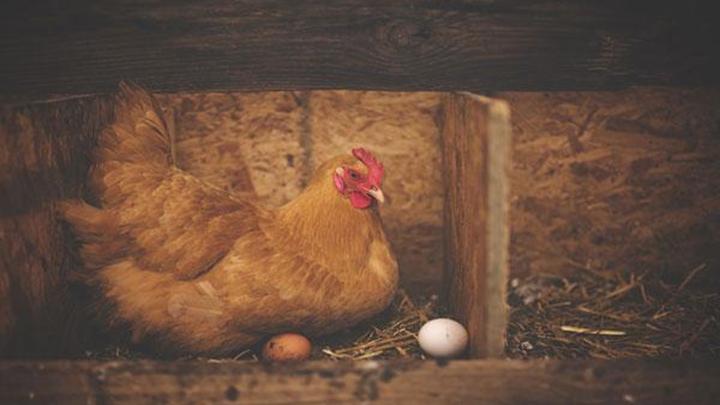
+ Maintain a Clean and Comfortable Environment: The chicken house should always stay clean and dry as well as well ventilated. Provide adequate space to avoid overcrowding; also ensure that nest boxes are cleaned out and comfortable.
+ Fresh Water: Ensure that your fowls have access to fresh, clean water at all times as dehydration can greatly cause a drop in egg production. Moreover, regularly inspect the water and keep it free from dirt.
+ Minimize Stress: Stress kills productivity. Protect your chickens from predators, lower levels of noise around them, and any sudden change in their environment.
+ Regular Health Checks: Frequently check your birds for diseases or parasites. Treating illnesses promptly keeps chickens healthier which boosts the productivity of eggs.
+ Manage Molting: During molting, try giving them extra protein on their diets it helps them regrow feathers faster, reducing the impact.
4) The golf-ball trick to increase egg production
“The “golf ball trick” is an easy method in which golf balls are placed in the nesting boxes of birds to provoke them to lay eggs.”
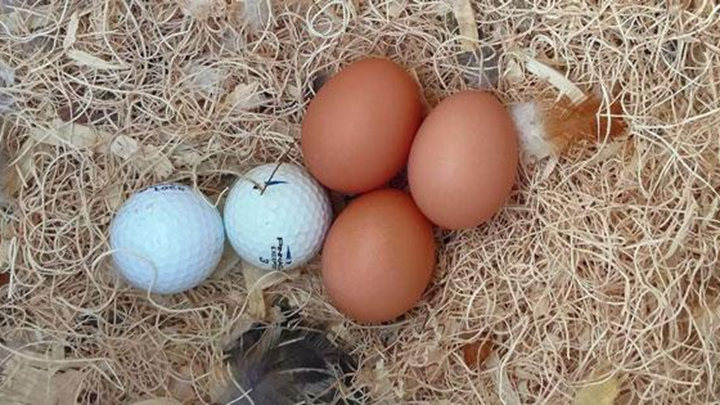
➔ Here’s how you do it:
Mimics Eggs: Simply place a golf ball, or even a counterfeit egg, in the laying nests where you want your hens to put their eggs. The presence of the golf ball feels and looks like that of an egg which stimulates a hen’s natural inclination to lay eggs where others have laid. This can help train young hens (pullets) or retrain older hens to use the nesting boxes instead of laying eggs in random spots around the coop.
Additionally, consistent laying in nest boxes creates relatively predictable and comfortable environments for hens. Consequently, such conditions can reduce stress levels, thereby helping to maintain regular egg production.
5) Conclusion

For farms aiming to increase egg production, especially in larger operations, the Lima Pelletizer streamlines feed production, saving both time and labor. By efficiently processing feed at home or on-site, you can ensure that your chickens always have access to fresh, high-quality food without relying on store-bought options, which can be costly. Plus, the machine allows you to adjust the formulation of the feed to suit different stages of the chickens’ lifecycle, whether they’re in their laying phase or growing.
To sum up the discussion, it is not pointless to say that if you take into account the above-described tips, you will definitely be successful in boosting egg production in your hens. Moreover, try to identify if any environmental factor is disturbing your hens and keep them healthy and happy, ultimately growing your business.

